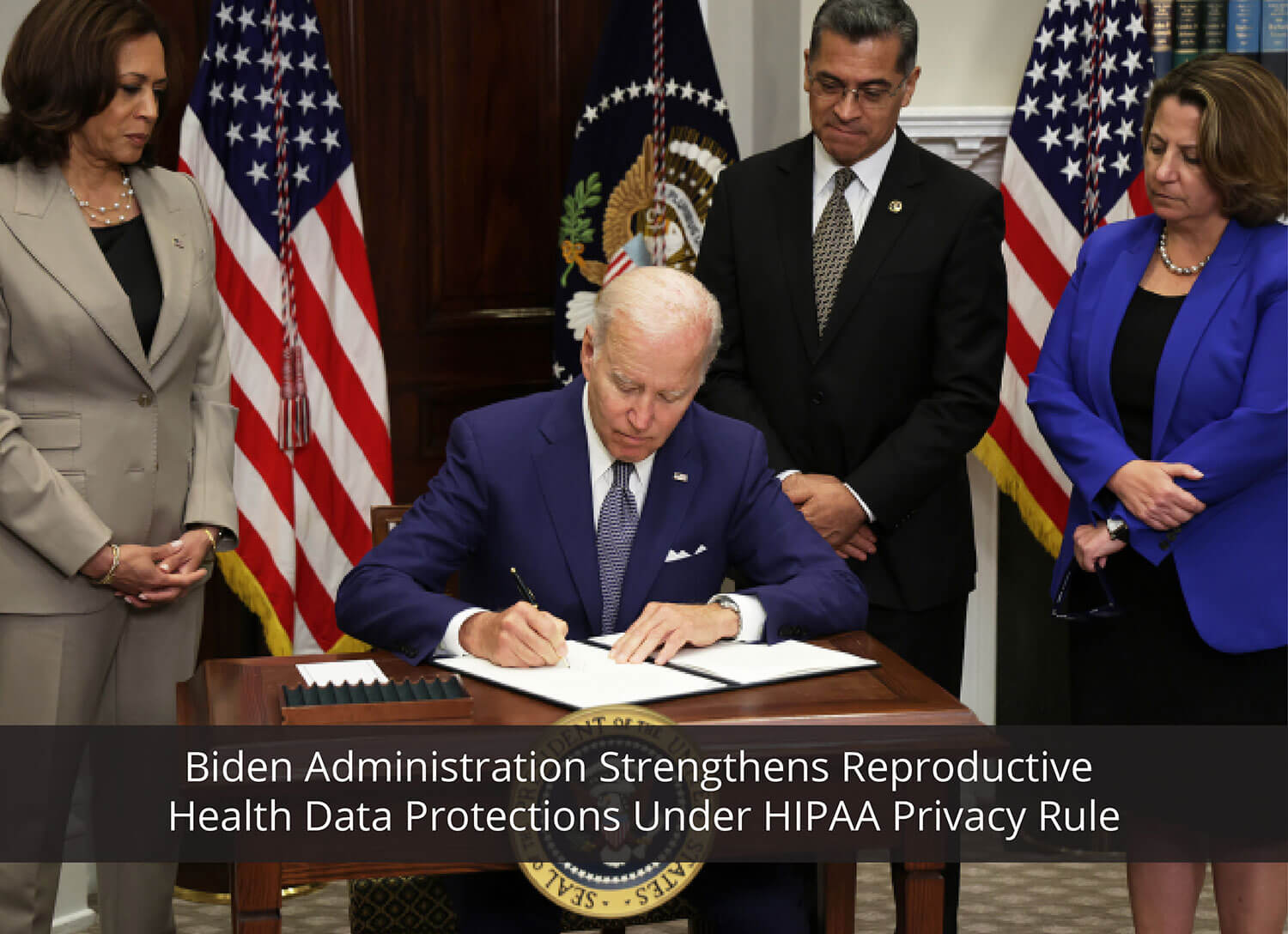Biden Administration Strengthens Reproductive Health Data Protections Under HIPAA Privacy Rule
The Department of Health and Human Services (HHS) has recently taken a step forward towards ensuring the confidentiality of reproductive healthcare data concerning the patient by issuing an administrative rule on 22 April that will safeguard this data against misuse in criminal investigations. This rule effectively confers similar federal privacy protections upon lawful reproductive healthcare services, including abortions, as other healthcare data covered by the Health Insurance Portability and Accountability Act (HIPAA).
To that end, this regulation is introduced to address fears patients as well as healthcare providers may have about possible misuse of medical records. One important consideration OCR Director Melanie Fontes Rainer made was to ensure that people don’t hide necessary medical details due to privacy concerns or fear of the law.
The recent regulatory changes in HIPAA privacy rule have deemed it illegal to utilize protected health information (PHI) to investigate or enforce legal action against a HIPAA-covered organization regarding the sharing of reproductive healthcare data. These changes apply to all forms of reproductive care services, including IVF, birth control, and abortion. It is important to note that this regulation is applicable only if the information was legally obtained from providers who were authorized under state or federal laws to offer such services. This control is imposed by requiring that a covered entity has a signed attestation that confirms that information requested on reproductive care will not be used for illegal purposes. Violations may subject an entity to criminal penalties, while failure to secure such attestations could result in civil penalties.
The regulation comes under HIPAA privacy rule and is supposed to protect the privacy of patients, but it could bring legal issues. In this respect, Claire Marblestone, a partner at Foley & Lardner, says that scrutiny may arise because the rule speaks only of reproductive healthcare privacy as included in HIPAA privacy rule.
Notwithstanding its faults, the rule handles worries connected with interstate travel for regenerative consideration, particularly for individuals dwelling in states with prohibitive abortion laws. HHS Secretary Xavier Becerra acknowledges the ongoing challenges caused by recent legal improvements yet emphasizes the organization’s commitment to ensuring reproductive rights.
In the year 2019, the Guttmacher Institute claims that there has been an immense rise in the number of people traveling to other states to get abortion services, thus reaffirming the need to bolster privacy laws. The final regulation will become effective after two months of publication in the federal register, and entities that have to comply with HIPAA privacy rule must do so within 240 days. By February 16, 2026, new guidelines should be implemented regarding notices of privacy policies to comply with these regulations.
Through the strengthening of privacy and protection against practices meant to respect patients’ confidentiality, the Biden administration is striving to build trust between people and their healthcare providers, all with a view of ensuring accessibility to quality reproductive healthcare services.
The final rule may be viewed or downloaded at:
Source:
- https://www.hhs.gov/hipaa/for-professionals/special-topics/reproductive-health/final-rule-fact-sheet/index.html
- https://www.federalregister.gov/documents/2023/04/17/2023-07517/hipaa-privacy-rule-to-support-reproductive-health-care-privacy
- https://www.beckershospitalreview.com/legal-regulatory-issues/hhs-finalizes-rule-to-shield-reproductive-healthcare-data.html#:~:text=HHS%20on%20April%2022%20finalized,healthcare%20data%20covered%20under%20HIPAA.




